CHANCE IS MISSED TO HUMANIZE MUGABE!
Chance is missed to humanise Mugabe
By Mary Revesai
http://www.newzimbabwe.com/pages/mary13.16106.html
IF A man is told often enough by enough people for a long enough time that
he is the embodiment of perfection - wise, strong, infallible and possibly
immortal - he begins to believe it.
For decades, Zimbabwean leader Robert Mugabe has been used to having people
licking his boots and singing his praises. He has relished hearing the Nolan
Makombes and Tony Garas of this world comparing him to Jesus Christ, the Son
of God. Others like Didymus Mutasa and some church leaders have suggested
that Mugabe was anointed by God to rule Zimbabwe for the rest of his life.
He has never found this grovelling embarrassing. Wherever Mugabe has gone,
he has seen his portrait gazing down benevolently on his subjects from the
walls of buildings, be they government, parastatal, municipal, business or
educational establishments. Upon his frequent departures from and arrivals
at Harare International Airport, a sea of faces waves him off or welcomes
him.
He is used to frenzied and ingratiating singing by men and women resplendent
in patriotic garb bearing his portrait. The sound of sirens announcing his
ubiquitous, grotesque and fuel-guzzling motorcade are like an addictive drug
that he can't just give up.
Psychologist Charles Horton Cooley described the kind of image a person has
of himself as the result of the responses and reactions of others as the
'looking glass self' or an idealised picture of oneself.
But as Edgar Tekere's biography, A Lifetime of Struggle, has shown through
revelations about Mugabe's past, this idealised self-image does not always
bear any relation to objective facts. The book, which I have not read, has
raised Mugabe's hackles in a way nothing has ever done before because it
has, so to speak, shattered the looking glass through which Zimbabweans,
despite their objective experiences and the evidence of their own eyes, are
expected to view the man who has controlled their fate for almost 30 years.
And if Mugabe's plans to cling to power by standing as a candidate in
presidential elections next year succeed, Zimbabweans will be expected to
endure more deprivation and repression as the octogenarian makes what he
knows is a last ditch attempt to impose his idealised legacy on the nation.
Tekere has been crucified by Zanu PF spin doctors and apologists for daring
to burst the bubble of Mugabe's infallibility and invincibility. Those who
have read the book have questioned certain things and pointed out Tekere's
own human weaknesses. This is as it should be. The point remains however,
that Tekere's human frailties and whatever inaccuracies, distortions or
exaggerations are found in his book, do not detract from the impact of the
publication of his biography on Zimbabwe's body politic. The book has put
Mugabe on the defensive in the true sense of the word for the first time
because allegations have been made about him by someone from his own party
who knew him intimately at the period being spotlighted. This was taboo
until now.
Over the years, Mugabe has become an expert at denouncing and attacking
perceived enemies, sell-outs, agents of foreign powers or unpatriotic
Zimbabweans on behalf of the revolution, his party and government. He has
never had to defend his own record and reputation because he had cunningly
created the illusion that he was head and shoulders above the rest and
therefore beyond reproach in all departments. Hooray to Tekere for forcing
him to confront for the first time that this is not so and that like the
rest of us, he has human weaknesses and vulnerabilities.
Ironically, if Mugabe's advisers and propagandists knew what they were doing
by keeping their fingers on the pulse of the nation and reading the public
mood correctly, they would have seized upon Tekere's revelations as an
opportunity to humanise Mugabe and portray him as a mortal human being like
everyone else.
After all, Mugabe is not the first leader in the world to have inconvenient
stories from his youth and past surfacing when he is at the pinnacle of
political power. His nemesis, United States president George Bush has had to
deal with revelations about a drinking problem in his youth and allegations
that he and his father belonged to a secret segregationist society. Another
U.S. president, Bill Clinton endured an even more fiery baptism of fire when
the U.S. congress trawled through his past to reveal numerous extra-marital
affairs while gathering evidence for his impeachment in the Monica Lewinsky
saga. Even in his retirement, Clinton still has to hear the jibe, 'I did not
inhale' which refers to his response when a story surfaced during his
presidency that he smoked mbanje during his student days at Oxford
University in Britain.
Former South African president Nelson Mandela had to grin and bear it when
personal details about his marriage to his now ex-wife Winnie were splashed
in the media when they divorced and during the reporting of the numerous
controversies Winnie has been embroiled in. Former Zambian president Kenneth
Kaunda had information about his Malawian origins exposed while he was in
power. Kurt Waldheim, who served as United Nations secretary general in the
1970s had to find a civilised way to manage the situation when information
surfaced that in his youth he had been a member of the SS, the Nazi
paramilitary organisation.
The list of world figures who have had secrets from their past exposed in
books or the media is endless. It is instructive that when the misfortune
befell them none of the figures listed above regarded it as the fire and
brimstone, life and death event that Mugabe has turned the publication of
Tekere's book into. He has gone on the warpath and encouraged an official
smear campaign against the author. He has enlisted an army of apologists,
columnists and the state broadcaster to defend him by spewing venom at
Tekere, whose book has made revelations about Mugabe's love life and marital
problems.
He appears, however, to have been most stung by Tekere's suggestion that he
was a reluctant recruit to the liberation struggle contrary to the image he
presents of himself today as someone who has never faltered or put a foot
wrong. Interestingly, Mugabe has often made mincemeat of opponents like
Morgan Tsvangirai of the Movement for Democratic Change over the issue of
their reluctance to join the war of liberation, proving the veracity of the
psychological theory of projection as a defence mechanism.
Mugabe has been hopping mad at Tekere because he cannot use brute force to
deal with him as he is currently doing to crush dissent following his
government's clampdown on political rallies. The only regrettable thing
about Tekere's book is that it and others chronicling events during the
early days of the liberation struggle did not appear earlier.
It is doubtful that if the roles of political luminaries had been subjected
to scrutiny by their peers, the creation of larger-than-life cult figures
like Mugabe would have occurred. If his advisers were worth their salt they
would know that is it futile to ram the details of how Mugabe was
"unanimously" anointed to lead Zanu PF more than 30 years ago down the
throats of a populace to whom independence is now meaningless because of the
repressive governance they are being subjected to.
This time-warped and sanctimonious self-validation means nothing in the
prevailing situation.
Mary Revesai is a New Zimbabwe.com columnist and writes from Harare. Her
column will appear here every Tuesday
















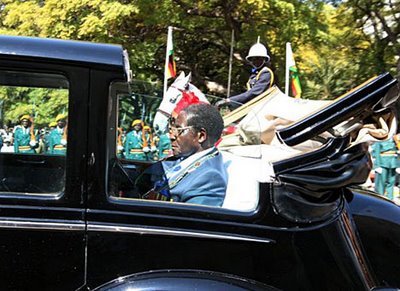

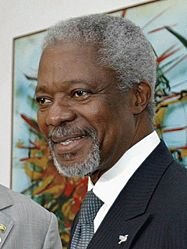

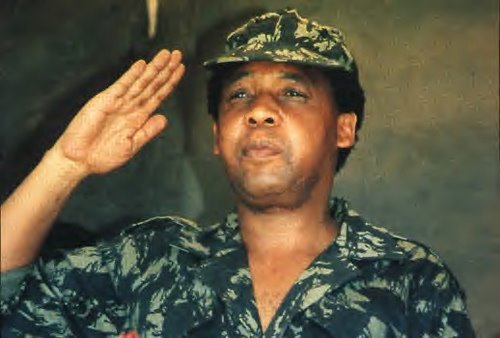

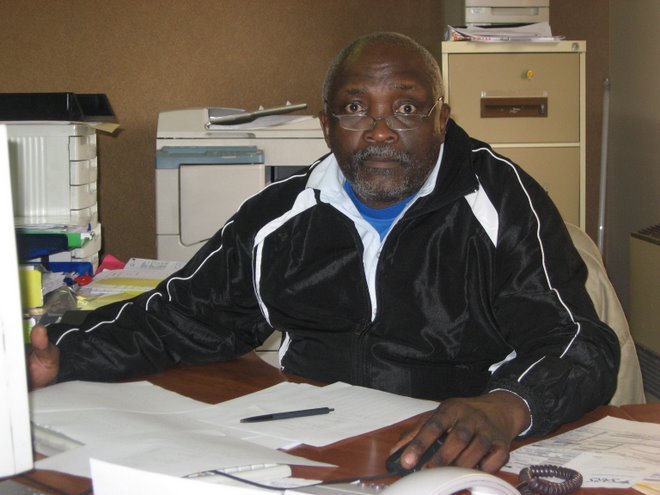
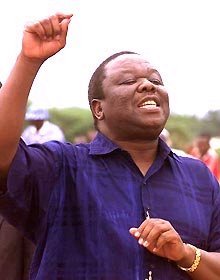
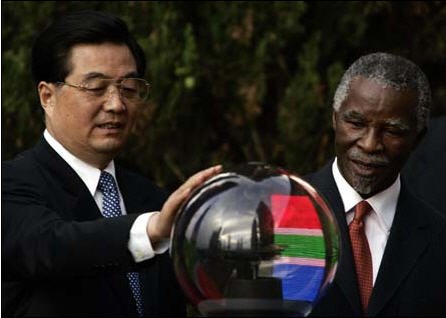





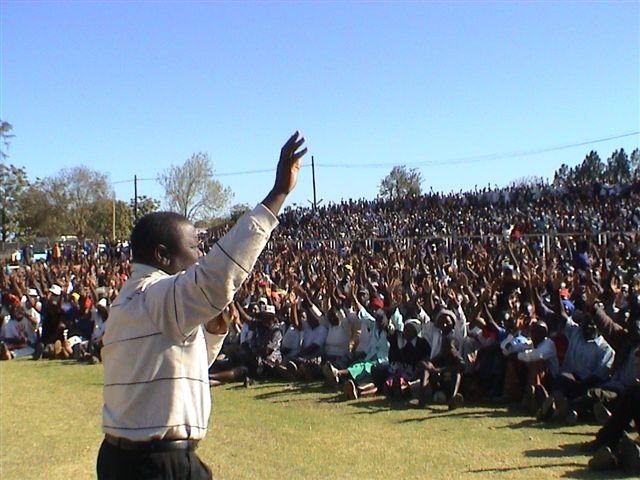


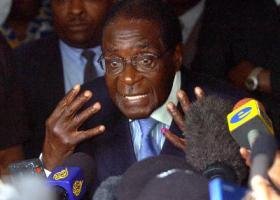

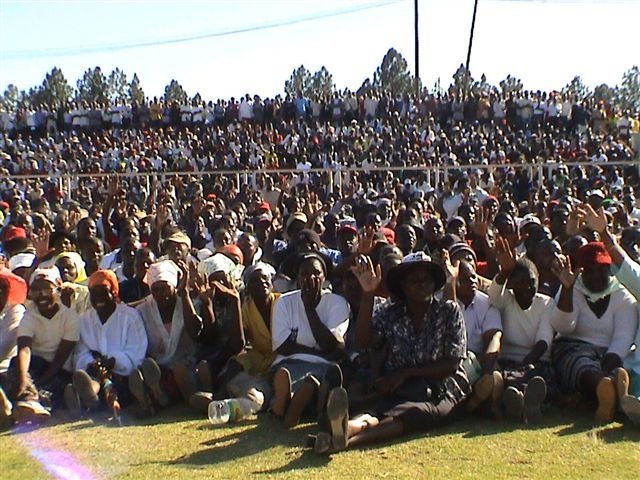
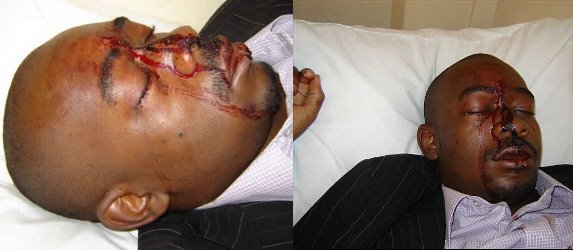
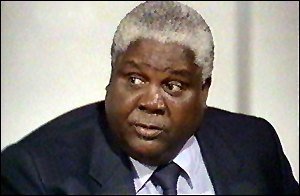



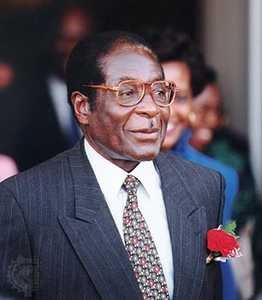

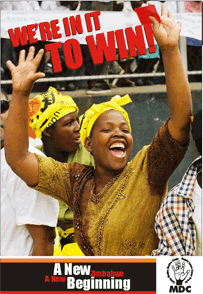

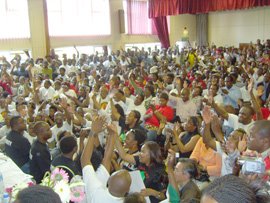




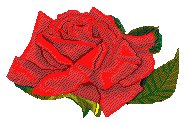

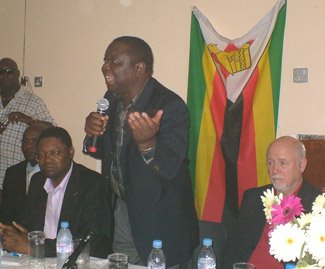

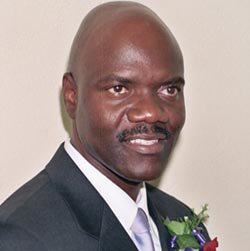


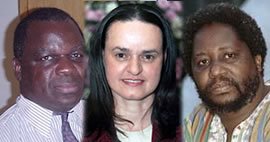




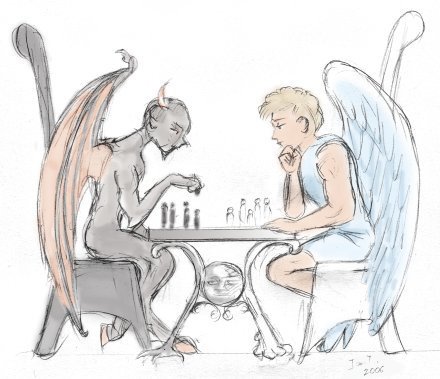

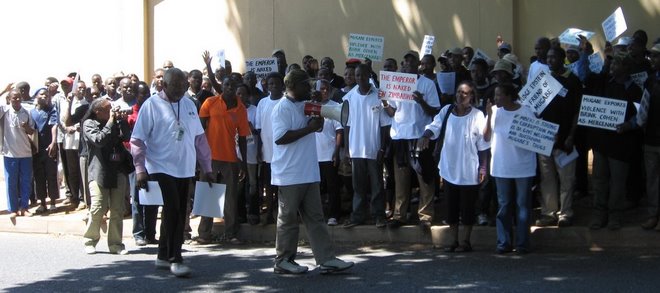
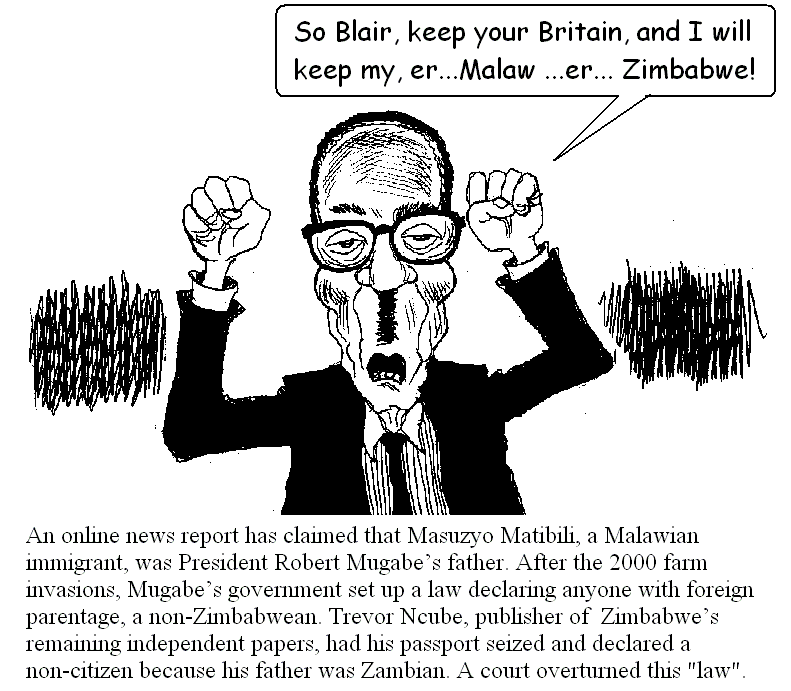
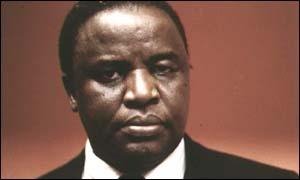
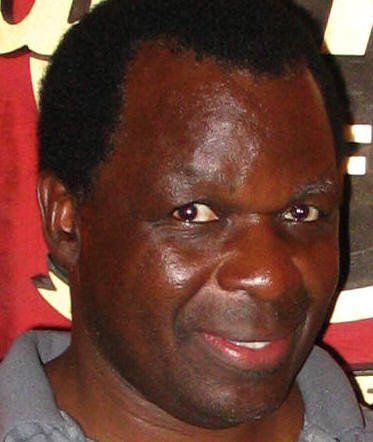





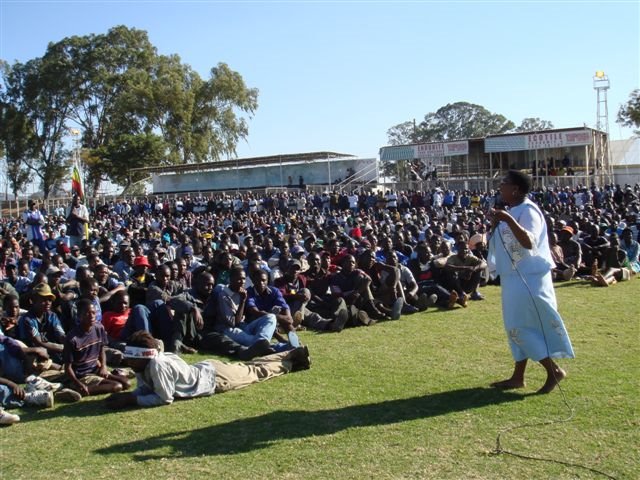



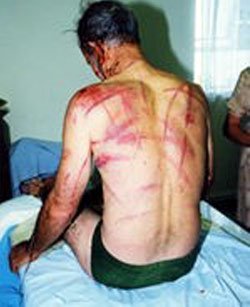
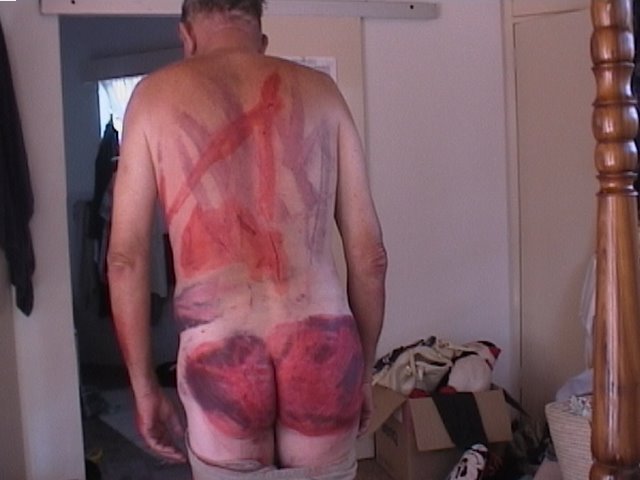

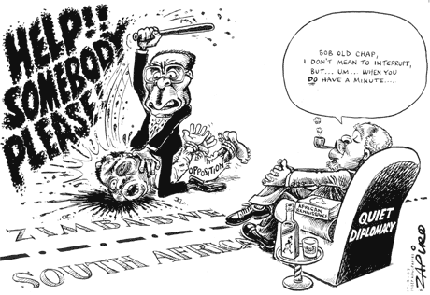
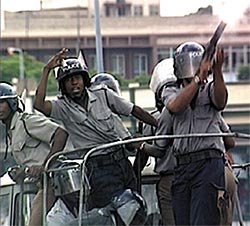
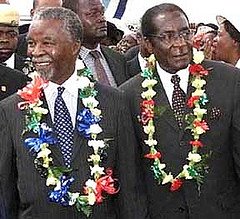
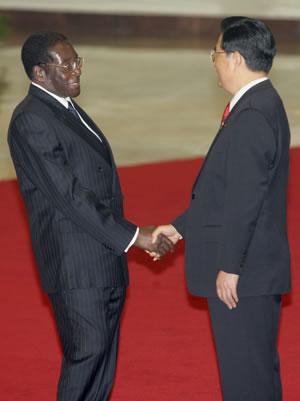





No comments:
Post a Comment